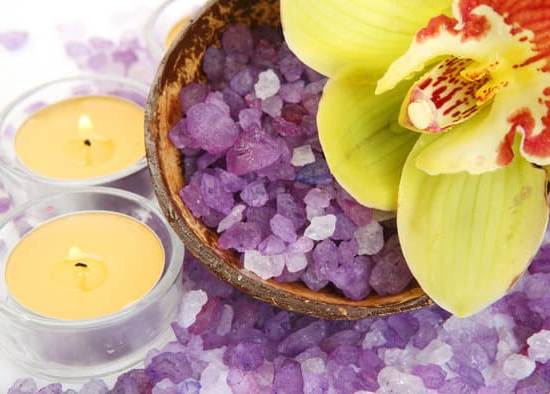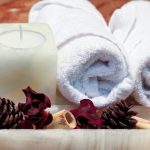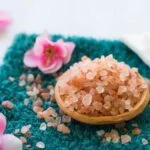Looking to learn about aromatherapy diffuser facts? Aromatherapy diffusers are devices that disperse essential oils into the air, providing various therapeutic benefits. In this comprehensive guide, we will delve into the basics of aromatherapy diffusers, including their history, benefits, and how they work. Whether you’re new to aromatherapy or a seasoned enthusiast, understanding the ins and outs of these handy devices is essential for making the most out of your aromatherapy experience.
Aromatherapy diffusers have been utilized for centuries as a method of delivering the healing properties of essential oils. The origin of these devices can be traced back to ancient civilizations such as Egypt, Greece, and China. Today, modern technology has enhanced the efficiency and convenience of aromatherapy diffusers, making them more accessible than ever before.
Using an aromatherapy diffuser can promote relaxation, improve sleep quality, alleviate stress and anxiety, purify the air, and enhance overall well-being. With a wide variety of essential oils available in the market today, each boasting its own unique properties and benefits, there are endless possibilities for creating personalized aromatherapy experiences to suit individual needs and preferences. Let’s explore this fascinating world of aromatherapy diffusers in more detail.
Types of Aromatherapy Diffusers
When it comes to choosing the right aromatherapy diffuser, there are several options available in the market, each with its own set of pros and cons. Understanding the different types of diffusers can help you make an informed decision based on your specific needs and preferences.
Ultrasonic Diffusers
One of the most popular types of aromatherapy diffusers is the ultrasonic diffuser. These diffusers work by using ultrasonic vibrations to break down the essential oil into micro particles, which are then dispersed into the air as a fine mist. Ultrasonic diffusers also act as humidifiers, adding moisture to the air which can be beneficial for dry climates or during the winter months.
On the downside, some users may find that ultrasonic diffusers are noisier compared to other types of diffusers due to the sound generated by the ultrasonic vibrations. Additionally, they require regular cleaning to prevent mold and bacteria growth in the water tank.
Nebulizing Diffusers
Nebulizing diffusers operate without water and use pressurized air to atomize essential oils into tiny particles that are then released into the air. This type of diffuser is known for its ability to disperse a concentrated amount of essential oil, making it a good choice for therapeutic purposes.
However, nebulizing diffusers tend to be more expensive than other types and can use up essential oils more quickly due to their high concentration level. It’s also worth noting that these diffusers do not produce any humidity in the air.
Heat Diffusers
Heat diffusers utilize heat, usually from a candle or electric source, to gently warm and vaporize essential oils. They are simple in design and relatively inexpensive compared to other types of diffusers. Heat diffusion is suitable for thicker oils such as vetiver which might clog other types of diffusers like nebulizers or ultrasonics.
While heat diffusion is easy-to-use and budget-friendly, there are concerns about potential alteration or degradation of certain therapeutic properties when essential oils are exposed to heat for extended periods. Additionally, heat diffusion does not have a large coverage area since they usually rely on passive diffusion rather than forced dispersal like nebulizers or ultrasonics would provide.
Essential Oils 101
Aromatherapy diffusers rely on essential oils to disperse pleasant scents and potentially provide therapeutic benefits. Essential oils are concentrated extracts derived from plants, flowers, herbs, and fruits through processes like distillation or cold pressing. These oils are highly aromatic and contain the natural essence of the plant from which they are extracted. When used in aromatherapy diffusers, essential oils can help create a soothing atmosphere and promote overall well-being.
There is a wide variety of essential oils available, each with its own unique properties and potential benefits. Some popular essential oils used in aromatherapy diffusers include lavender (known for its calming effects), peppermint (often used for energizing and invigorating blends), eucalyptus (favored for its refreshing scent and potential respiratory benefits), and citrus oils like lemon or sweet orange (commonly used to uplift mood).
It’s important to note that not all essential oils are safe for use in aromatherapy diffusers, so it’s crucial to research and select high-quality, pure oils that are suitable for diffusion.
When choosing essential oils for use in aromatherapy diffusers, it’s recommended to opt for pure, unadulterated products from reputable sources. Look for essential oils that are labeled as “100% pure” or “therapeutic grade” to ensure their quality. Additionally, consider factors such as the scent profile of the oil, its intended purpose (relaxation, focus, respiratory support, etc.
), and any potential contraindications or sensitivities. By selecting the right essential oils and using them appropriately in aromatherapy diffusers, individuals can harness the power of these natural extracts to enhance their living spaces and promote a sense of well-being.
In addition to providing pleasant fragrances, many essential oils used in aromatherapy diffusers have been studied for their potential therapeutic effects. Research suggests that certain essential oils may have antibacterial, antifungal, anti-inflammatory, or stress-relieving properties when diffused into the air.
However, it’s important to approach these claims with a critical mindset and acknowledge that not all purported benefits of essential oils have been conclusively proven through scientific research. When incorporating aromatherapy diffusers into daily routines, consumers should be mindful of both the potential benefits and limitations associated with using essential oils in this manner.
How Aromatherapy Diffusers Work
Aromatherapy diffusers are popular devices used to disperse essential oils into the air, allowing users to enjoy the aromatic and therapeutic benefits of the oils. Understanding how these diffusers work can provide insight into their effectiveness and proper usage.
There are several methods of diffusion used in aromatherapy diffusers, each with its own unique mechanism. Here are some common ways that aromatherapy diffusers work:
- Ultrasonic Diffusion: This type of diffuser uses ultrasonic vibrations to break down essential oils into micro-particles, which are then released into the air as a fine mist.
- Nebulizing Diffusion: Nebulizing diffusers use pressurized air or gas to atomize essential oils into tiny particles without the use of heat or water, resulting in a concentrated and pure dispersion of the oil.
- Heat Diffusion: Heat-based diffusers use warmth to gently heat essential oils, causing them to evaporate and fill the room with their aroma.
- Evaporative Diffusion: In this method, essential oils are placed on a pad or filter within the diffuser, and a fan blows air through the pad, causing the oils to evaporate and circulate throughout the room.
Understanding the mechanism of each type of aromatherapy diffuser can help individuals choose a device that best suits their needs and preferences for dispersing essential oils.
When it comes to understanding how aromatherapy diffusers work, it’s important to consider how each method of diffusion impacts the effectiveness of aromatherapy. For example, ultrasonic and nebulizing diffusers are often recommended for maximum therapeutic benefits since they do not alter the chemical composition of essential oils. In contrast, heat-based diffusers may change the properties of certain oils due to exposure to high temperatures.
Additionally, considering factors such as coverage area, noise level, and maintenance requirements can help users select an aromatherapy diffuser that meets their specific needs. Knowing how these devices function is crucial for maximizing the benefits of using aromatherapy diffusers while ensuring safe and effective usage.
Aromatherapy Diffuser Safety
Safety Tips for Using Aromatherapy Diffusers
When using aromatherapy diffusers, it is important to consider the safety of all individuals in your environment, including pets and children. Some essential oils can be harmful or toxic to animals, so it is crucial to research which oils are safe to use around pets and which should be avoided. Additionally, some essential oils may cause allergic reactions in certain individuals, so always test a small amount of the oil before using it in a diffuser.
Potential Risks and Precautions
One potential risk associated with aromatherapy diffusers is the accidental ingestion of essential oils by children. It’s important to keep diffusers and essential oils out of reach of curious kids to prevent any accidental consumption. Furthermore, prolonged exposure to certain essential oils or overuse of a diffuser can cause respiratory irritation or other health issues. It’s crucial to follow usage guidelines for specific essential oils and take breaks from diffuser use if any adverse reactions occur.
Proper Maintenance and Care
To ensure safe usage of aromatherapy diffusers, it’s important to regularly clean and maintain the device according to the manufacturer’s instructions. Neglecting maintenance can lead to mold or bacterial growth within the diffuser, which can pose health risks when the device is used. Regular cleaning will also help prevent clogs or malfunctions that could potentially lead to safety hazards. By following proper maintenance practices, you can enjoy the benefits of aromatherapy without compromising your well-being.
Aromatherapy Diffuser Benefits
Aromatherapy diffusers have gained popularity in recent years due to their potential to improve overall well-being. These devices are designed to disperse essential oils into the air, allowing individuals to experience the therapeutic benefits of aromatherapy. Whether you are looking to enhance relaxation, reduce stress, or promote better sleep, aromatherapy diffusers can play a significant role in improving your mental, emotional, and physical health.
One of the key benefits of using aromatherapy diffusers is their ability to promote relaxation and reduce stress. Certain essential oils such as lavender, chamomile, and bergamot are known for their calming properties and can help create a peaceful atmosphere in your home or workspace. By inhaling these soothing scents, individuals may experience a decrease in stress levels and an overall sense of tranquility.
In addition to promoting relaxation, aromatherapy diffusers can also help improve mood and mental clarity. Essential oils like peppermint, lemon, and eucalyptus are often used to invigorate the senses and boost energy levels. The inhalation of these uplifting scents may contribute to improved focus, heightened alertness, and a more positive outlook on the day ahead. For those struggling with anxiety or low moods, the use of aromatherapy diffusers with mood-enhancing essential oils can be particularly beneficial.
Finally, beyond the mental and emotional benefits, aromatherapy diffusers can also have a positive impact on physical well-being. Certain essential oils possess antibacterial, antiviral, and anti-inflammatory properties that may help support the immune system and overall respiratory health when dispersed through a diffuser. This makes them ideal for creating a healthier indoor environment for you and your family.
| Aromatherapy Diffuser Benefits | Benefits |
|---|---|
| Promotes Relaxation | Reduces stress levels and creates a peaceful atmosphere |
| Improves Mood and Mental Clarity | Enhances focus, alertness, and positivity through uplifting scents |
| Supports Physical Well-Being | Antibacterial & anti-inflammatory properties aid in respiratory health |
Aromatherapy Diffusers and Mood
The relationship between scents and mood regulation has long been recognized, with the use of aromatherapy dating back to ancient civilizations. Aromatherapy diffusers play a crucial role in influencing emotions and behavior through the inhalation of aromatic essential oils.
The olfactory system, which is responsible for the sense of smell, has a direct connection to the brain’s limbic system, where emotions and memories are processed. This biological link explains why certain scents can evoke specific emotional responses, such as relaxation, happiness, or calmness.
Research has shown that the use of aromatherapy diffusers can have a profound impact on stress, anxiety, and relaxation. For example, the scent of lavender essential oil has been found to have calming effects on individuals experiencing high levels of stress or anxiety.
Similarly, citrus scents like lemon or orange essential oils are known to uplift mood and promote feelings of energy and positivity. By understanding how different scents influence our emotions, individuals can strategically use aromatherapy diffusers to create specific atmospheres or emotional states in their living spaces.
Another important aspect of using aromatherapy diffusers to affect mood is the selection of specific essential oils that align with desired emotional effects. For instance, peppermint essential oil is often used for its invigorating and energizing properties, making it an ideal choice for increasing focus and productivity.
On the other hand, chamomile essential oil is popular for its calming and soothing effects, making it suitable for promoting relaxation and sleep. By carefully selecting and blending different essential oils in an aromatherapy diffuser, individuals can customize their environment to support their emotional well-being.
| Aromatherapy Diffusers | Mood Regulation |
|---|---|
| Direct connection to limbic system | Influences stress levels |
| Specific scents evoke emotional responses | Promotes relaxation |
| Citrus scents promote positivity | Uplifts mood |
Aromatherapy Diffuser Facts and Myths
In conclusion, understanding the facts and myths surrounding aromatherapy diffusers is crucial for those interested in incorporating them into their wellness routines. With the multitude of benefits they offer, it’s important to separate fact from fiction to make informed decisions about their use. By debunking common misconceptions and addressing myths surrounding aromatherapy diffusers, individuals can harness their full potential and experience their positive effects.
One key fact about aromatherapy diffusers is that they come in various types, including ultrasonic, nebulizing, heat, and evaporative diffusers. Each type has its own pros and cons, making it essential for users to choose the best one for their specific needs.
Additionally, understanding essential oils and the role they play in aromatherapy diffusion is another critical aspect of using these devices effectively. Selecting high-quality essential oils is paramount in ensuring a safe and beneficial experience with an aromatherapy diffuser.
It’s also important to address myths surrounding the safety of using aromatherapy diffusers around pets and children. While certain precautions should be taken, when used correctly and responsibly, diffusers can provide numerous physical, mental, and emotional benefits. Research-backed evidence supports the positive effects of aromatherapy on overall well-being. By promoting accurate information and dispelling misconceptions about aromatherapy diffusers, individuals can make educated choices about integrating them into their daily lives for improved health and relaxation.
Frequently Asked Questions
What Is a Fact About Diffuser?
A fact about diffusers is that they are used to disperse essential oils into the air, creating a pleasant aroma and potentially offering therapeutic benefits. Diffusers come in various designs, including ultrasonic, heat, evaporative, and nebulizing types.
What Are the Benefits of Aromatherapy Diffuser?
The benefits of aromatherapy diffusers include promoting relaxation, improving sleep quality, reducing stress and anxiety, purifying the air, and even helping with respiratory issues. By dispersing essential oils into the air, diffusers can positively impact both physical and emotional well-being.
What Is an Interesting Fact About Aromatherapy?
An interesting fact about aromatherapy is that it has been used for thousands of years in various cultures around the world. From ancient Egyptian civilization to traditional Chinese medicine, aromatherapy has a rich history of being utilized for its healing properties and promoting overall wellness.

Are you looking for a natural way to improve your health and wellbeing?
If so, aromatherapy may be the answer for you.





